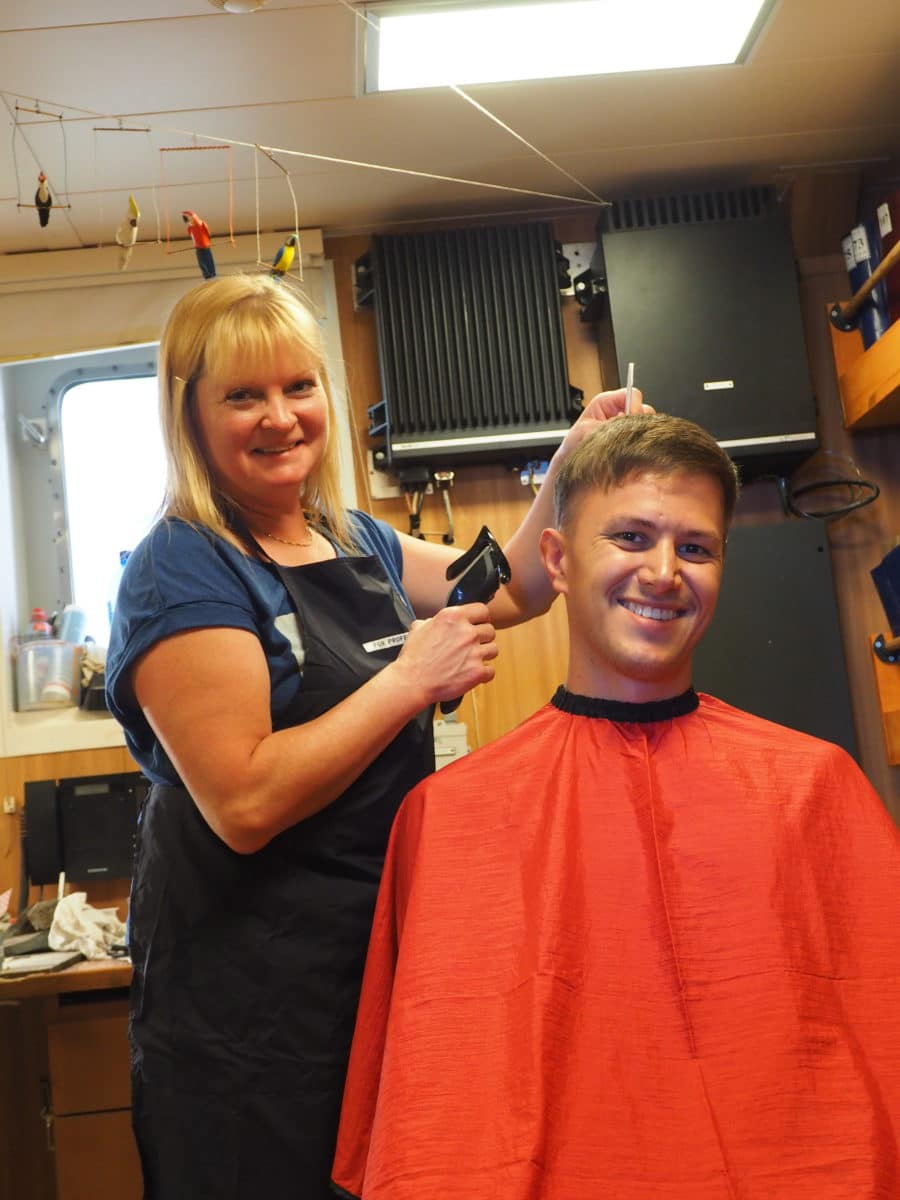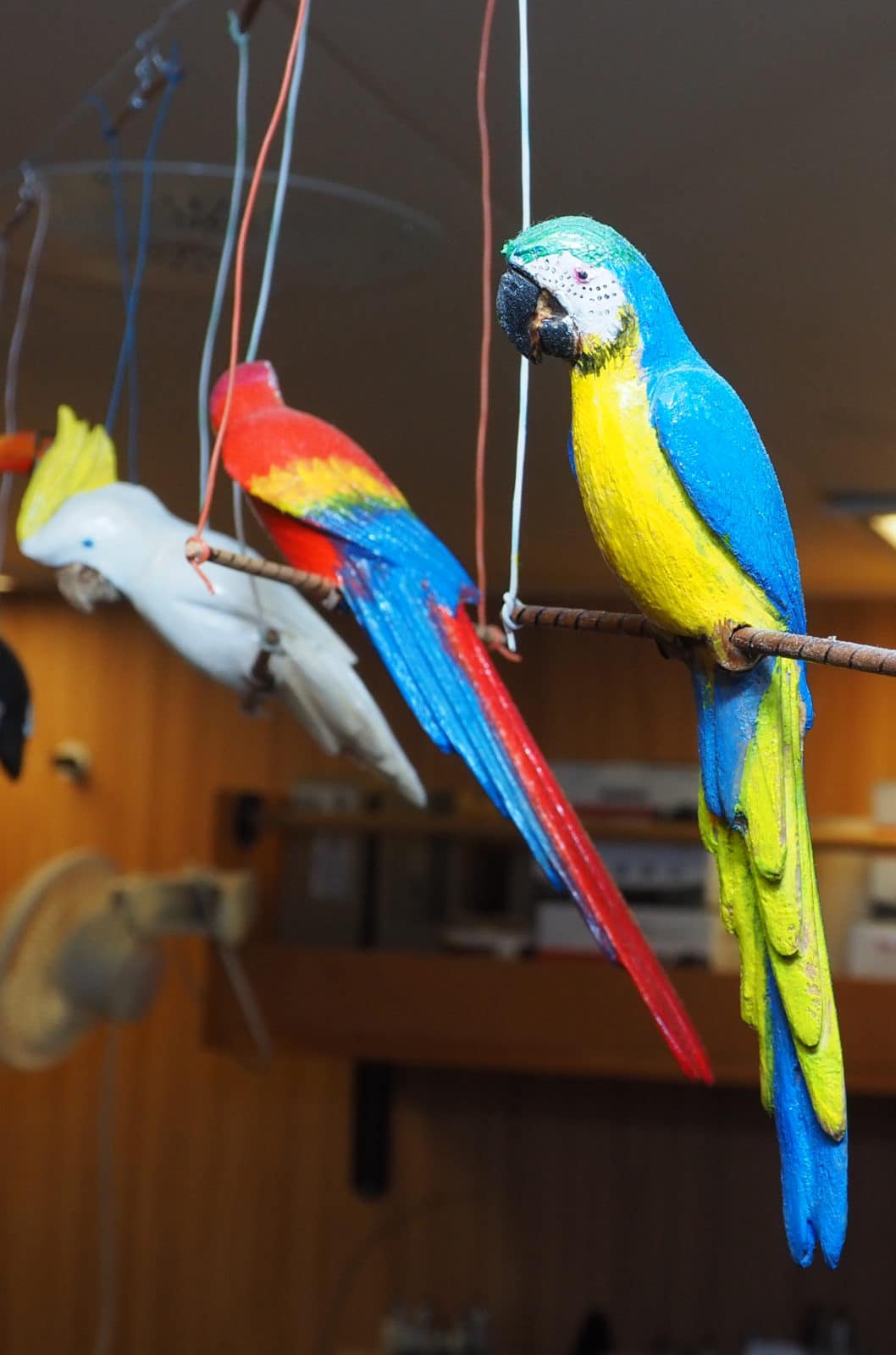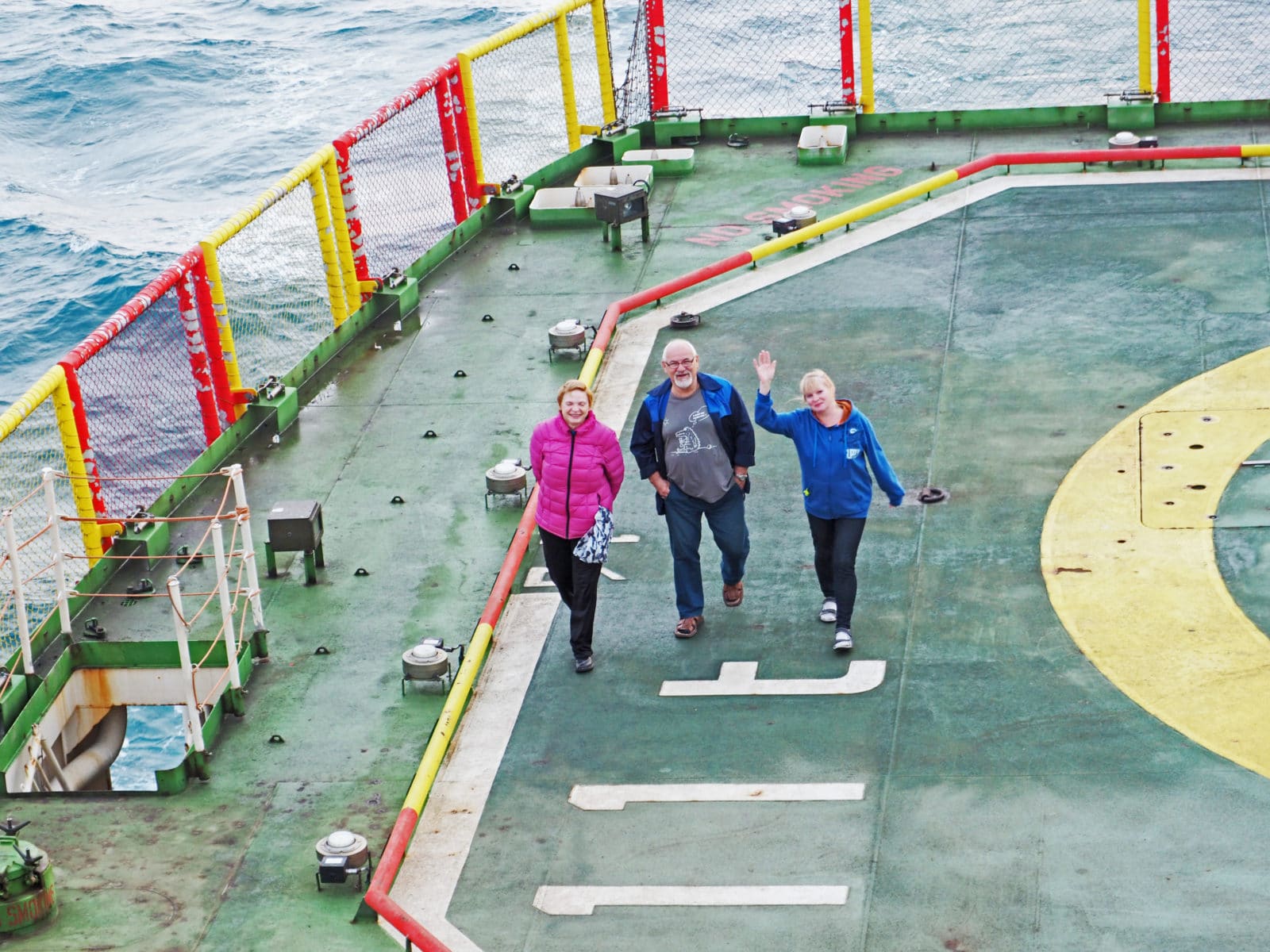By Inigo Everson, chief scientist on leg 4.
The views of anyone visiting a foreign country are inevitably coloured by the politicians and media at home painting a stereotypical view of the people in the country they plan to visit. So has living on a Russian icebreaker for a couple months coloured my perceptions?
Decades of participating in international meetings have meant that I knew I would be illiterate, because both the written and spoken language are so different to my native English. My inability previously to hardwire into my brain more than a few Russian words was an obvious barrier. On the plus side, our motto ‘Science has no Borders’ resonated with me from the outset. The cross fertilisation of ideas between branches of science, whether at home or abroad, often leads to unforeseen opportunities, and from talking to ACE participants that is clearly happening. But over and above that, although probably not at the forefront of ideas for the ACE organisers, language and lifestyle differences were, to me, clearly borders that I needed to overcome or circumvent.
To a scientist joining a ship, it is easy to set a determined focus on ones own programme and not notice much of what is going on around you. Such a mindset is understandable, given the difficulties most have faced in securing funding for their research. So let’s take a few minutes to see what has been going on around us. We see some of the members of our Russian crew regularly, some hardly ever. Do we wonder where they fit into the overall scheme of things? Do we think ‘Where did that person come from?’ forgetting that ‘that person’ has been part of the ship for far longer than most, if not all, of the members of the scientific team.
Starting my working day at around five o’clock, there are few people about. It is, though, the time for all stairs and alleyways to be swept and mopped by a band of women, working carefully and quietly, in their own little world, listening to something on their headphones. Then they go through the same routine in late afternoon. In between they disappear behind closed cabin doors with Cyrillic script on them that I can’t easily read. Slowly over the months I have got to know a little about some of the men and women that make up the ‘crew’, not only from what one might call the Hotel group staff but also in the other departments.
Early on in the trip I asked Irina, who was working hard cleaning an alleyway, where I might get clean towels and bedding. Follow me, she indicated, words failed us both, and introduced me to Olga, matriarch of the laundry, she took us to another cabin, all of us walking in line and in step, all the while my brain was subliminally hearing Prokofiev’s Cinderella and visualising Mathew Bourne choreography. Were my balletic stereotypes coming to the fore?

Later, as I passed by a cabin door that happened to be open, out of context, there was the same Irina that I had seen mopping an alleyway a few hours earlier. This time she was acting as barber to one of the communications officers; not only is she a professional hairdresser, but an ace chess player. A gentle reminder that the ship’s company is its own self contained community and there is much more than just what you see at the surface. For another example, as we collect our meals through the dining room hatch, how often do we recall that Yuri is a first rate photographer; happy to talk cameras and techniques.
A further reminder came as I walked along the alleyway leading to the echosounder laboratory and heard a voice calling, ‘Enigma, Would you like a real coffee?’ This was Oleg, so I stopped and had a cup of very strong sweet coffee. He proudly told me he grinds his own coffee beans. We chatted and realised that we had both been on ships around South Georgia in the 1980s. But what I was most interested in was his little ‘cottage industry’, making hand carved model penguins and parrots from small pieces of hardwood. The penguins, only a centimetre or two high are mounted on pieces of white granite to look like ice, whilst the macaws and cockatoos sit on their own little swing perches, slung from the deckhead. Oleg explained that he enjoyed wood carving because he has not the space to do it at home in St Petersburg. We chatted on about woodwork and travel generally before getting back to our respective jobs.
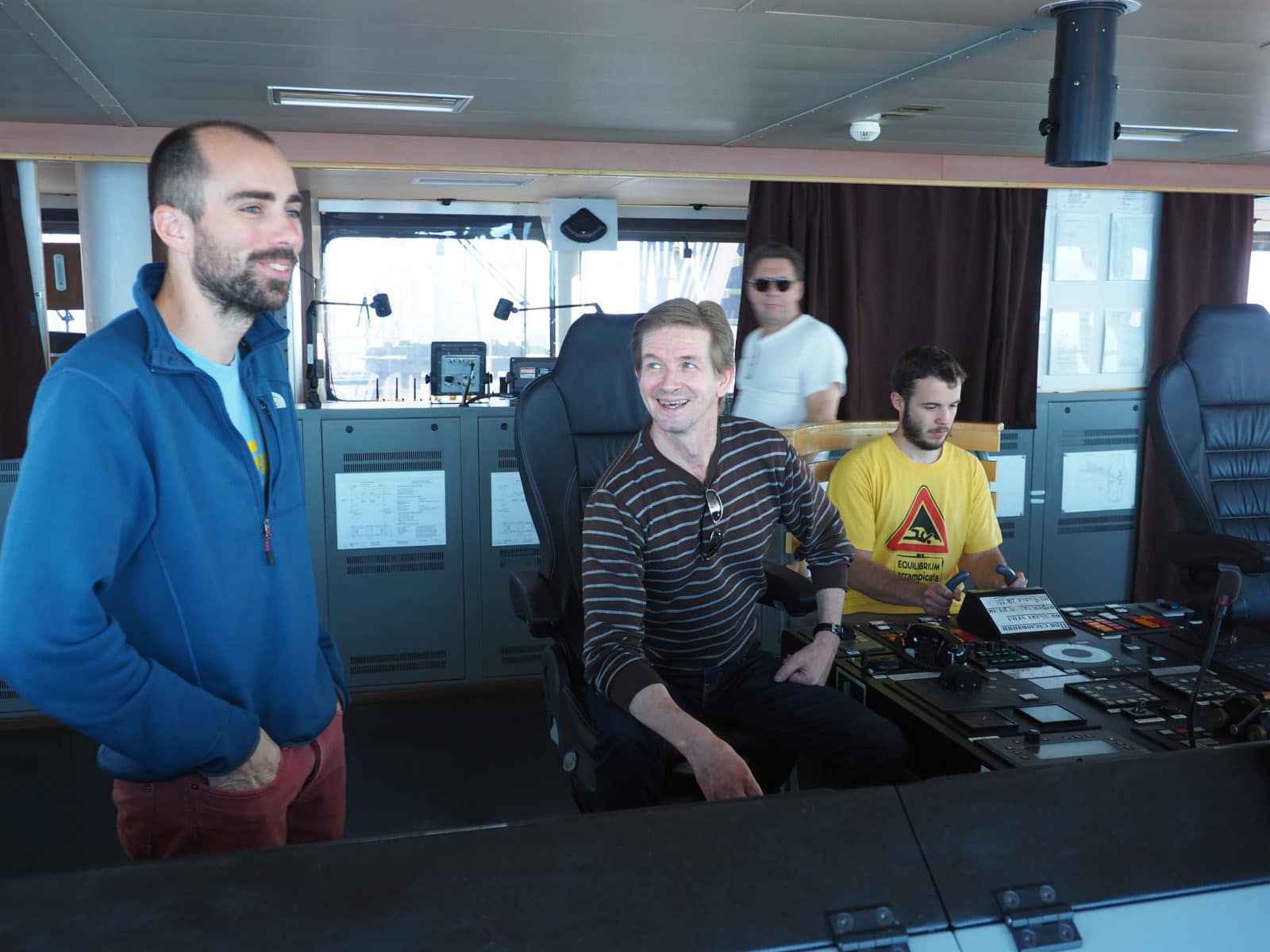
On the bridge for a ‘guided tour’ we were impressed, as one would expect for a modern icebreaker, but like children many of the team had to have a go at steering, thought they’d done pretty well, until they were shown the zig-zag wake of the ship. They laughed just as much as Dmitri (Ch. Officer) and Andrew (Third Officer) who must have seen this many times before. Humour is never far below the surface on a happy ship.
In the late afternoon and evening small groups of the crew, men, women, men and women, walk around the helicopter deck, often deep in thought or conversation. Whether it is for exercise or just plain sociability, I know not, but it could just as easily have been in a square or park in Hobart, Punta Arenas or Barcelona as much as in their home city of St Petersburg. So it seems that, to parody the ACE motto, I conclude that ‘Sociability has no Borders’ maybe even ‘Seafarers have no Borders’. However you define it, ‘The Whole is greater than the Sum of the Parts’
After a couple of months, I have to admit that I am still at the start of my learning curve on the Russian language, a generational thing perhaps, because on the other side of the coin, some of the younger crew members have gone that extra mile. Where I and the scientific team have advanced comes from not just meeting, but living with, genuine Russian people who, like the rest of us, would like a comfortable life, bread on the table and the opportunity to enjoy a good laugh now and again.
This ship is, and has been, the home of the crew for many months. We, the scientific team, are transient visitors who were watched guardedly to start with, but the crew were willing to offer the hand of friendship to us. I say a huge ‘thank you’ to all of them. I shall leave with very warm, but mixed, feelings; I need to get home, but I don’t want the journey to end. What better recommendation can I give than to say that I’d like to have the chance to sail with them again.
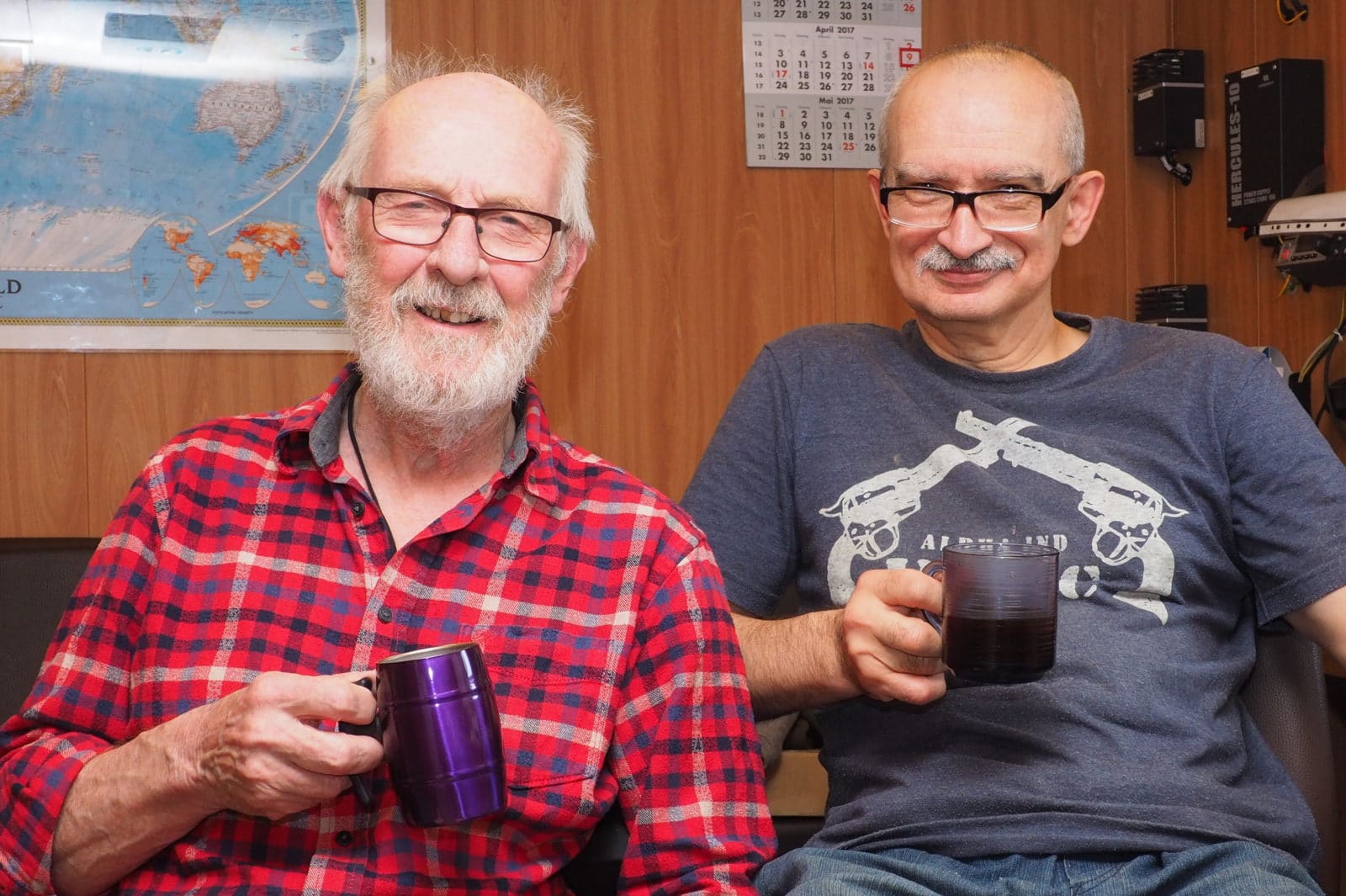
Inigo and Oleg, sharing a coffee and talk woodwork.
